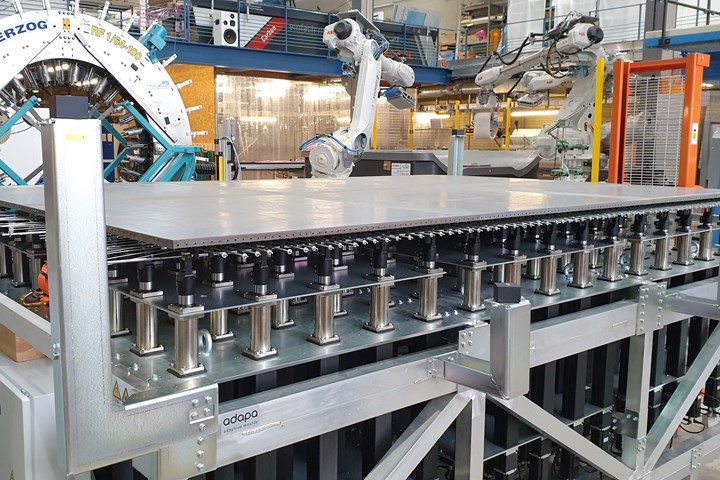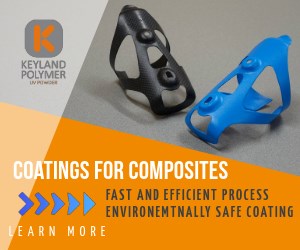Adapa A/S technology chosen for flexible composite design and manufacture
The University of Stuttgart Institute of Aircraft Design is using adaptive mold technology to develop composite products and automated robotic manufacture processes for the construction industry.

Photo Credit: University of Stuttgart Institute of Aircraft Design
It was recently announced that the University of Stuttgart (Stuttgart, Germany) Institute of Aircraft Design have chosen Adapa A/S’ (Aalborg, Denmark) adaptive mold technology in a project aimed at introducing composites in the construction industry, with reduced material use through load-path optimized composite structures and automated manufacturing to reduce CO2 gas emissions.
Other requirements that the technology is said to support includes an interaction with pre-designed production processes while still enabling flexibility in production design. Further, because the composite structures are to be manufactured based on 3D design files, and will also be used for predicting the mechanical and material properties of the final structures via simulations for future potential, the university felt this technology fit its expectations.
Related Content
-
Composites-reinforced concrete for sustainable data center construction
Metromont’s C-GRID-reinforced insulated precast concrete’s high strength, durability, light weight and ease of installation improve data center performance, construction time and sustainability.
-
Composite buildings go monocoque
Superior protection from the elements plus fast, affordable installation and maintenance have quickly made Orenco Composites’ DuraFiber buildings an attractive choice for water and wastewater, communications, transportation and power industry outbuildings.
-
Composites enable epic interior for Museum of the Future
For this one-of-a-kind lobby, AFI pioneered digital, reconfigurable molds to achieve organic-shaped, multifunctional panels and stairwell cladding.













